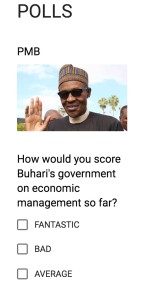REFLECTIONS: BY OLU OBAFEMI SMS Only: 08033341157 Email: omoajon@yahoo.com
The topic of this Lecture is obviously ambitious, but absolutely rife, apt and germane to the great question of the day in Nigeria and the rest of the world. Education is, no doubt the handmaiden of development in any nation. This is so even in the societies that are said to have developed, not to mention those nations like Nigeria who are said to be developing or worse still, under-developed. (a terrible consignment of fate dished out to us by our imperious definers of the West!). Nigeria is a state of unstable peace, worsened by insecurity, terrorism and insurgency. But here what raven said about the link between education and national stability; The best defense against terrorism is an educated people. Education, which promises to each individual the opportunity to express their individual talents fully, is fundamental to building a peaceful world
Raven went further to admonish the developed world, especially the United States, to rise up to the occasion of contributing substantially to the project of alleviating the pervasive poverty of the ‘poorest people of the world.’ And this can and should be done through education.
Many other renowned world educationists paint grim pictures of the criminal absence of education space in the world, especially in Africa, Asia and Latin America. James J. Durderstalt paints the picture of the crisis of access to Higher Education in the world thus; There are 30 million people in the world today who are fully qualified to enter a university but for whom no university place is available. Within a decade there will be 100 million university-ready people…in most of the world, higher education is mired in a crisis of access…Unless we can address this crisis, billions of people in coming generations will be denied the education so necessary to compete in, in an age of knowledge (my emphasis)
He further nudges the wealthy nations to assist the ‘developing’ nations in building the educational systems to meet their exploding needs.’ Have we ourselves begun to appreciate He states that the developed world owes it to humanity a duty to raise to the support of the under-developed world on the matter of educating the ever-growing number of their youthful population, Nigeria being one of the most hit nations with uneducated youth budge?
Education and National Development
It has long been established that education is inseparably tied with the development of a nation. In Nigeria, historically speaking, education and development are un-detachable. Our nationalists underscored this fact even in the drive for political independence in their awareness that:‘The country could not develop without a proper grounding in a national education system that can guarantee the production of the desired quality workforce without which national development is impossible (Olusegun Obasanjo, 2012).
Yet, long before Olusegun Obasanjo, there was the pioneering role played by our founding fathers in the nation and particularly in the Western Region. The founders of the Action Group led by Chief Obafemi Awolowo, with the active participation of Chief Ladoke Akintola, in making education the foremost cardinal point in their development agenda. The free education programme of the West started by Awolowo was consolidated, even amidst the political torrents of the sixties by his successor, SLA. It is no wonder, therefore, that structuring their developmental plans around education, the Western Region was far ahead of the other regions in ‘nation building through human capacity building. It must be said that the tertiary institution at Ile-Ife, a brain-child of Chef Obafemi Awolowo, was actualized and completed by his successor, Chief Akintola. This is significant to mention in an age of governments in discontinuities that characterize our myopic governance style nowadays, where a new government, so as not to give credence to their predecessor, will set aside, like one fleeing from a plague, all structural efforts embarked upon by those who came before them, no matter how laudable or relevant to the yearnings of the people. It is a matter for commendation, that in spite of the mammoth political bickering and politics of hate that was fuelled between these two great men, the educational programme initiated by the predecessor, Chief Awolowo, was galvanized into fruition by the successor, Chief Akintola. Both men believed that building an enduring nation rests, inexorably, on a solid educational foundation; that no nation can develop behind the back of education.
We must also note that, part of the reluctance of Sir Ahmadu Bello to jump into the bandwagon of the clamour for early political independence was his determination to carry through his development effort of the north, a programmed that was committedly built around education. This he carried through with a remarkable degree of equity and equality in the fourteen provinces of the north. Besides establishing the West African Pilot in 1937, Nnamdi Azikiwe (Zik of Africa) was first President of this country. Before then he had done so much to support education and its development in his country. If we devote this lecture to the crucial issue of education now, it is to nudge people in government and others who have the means to brace up to the centrality of education in a knowledge society where physical industries will, inevitably yield space or the knowledge industry globally and our country can ill-afford to be left out in this enterprise.
Concluded
Follow us on Twitter: @NewsFetchers
Like our Facebook page: NewsFetchers













No comments
Post a Comment